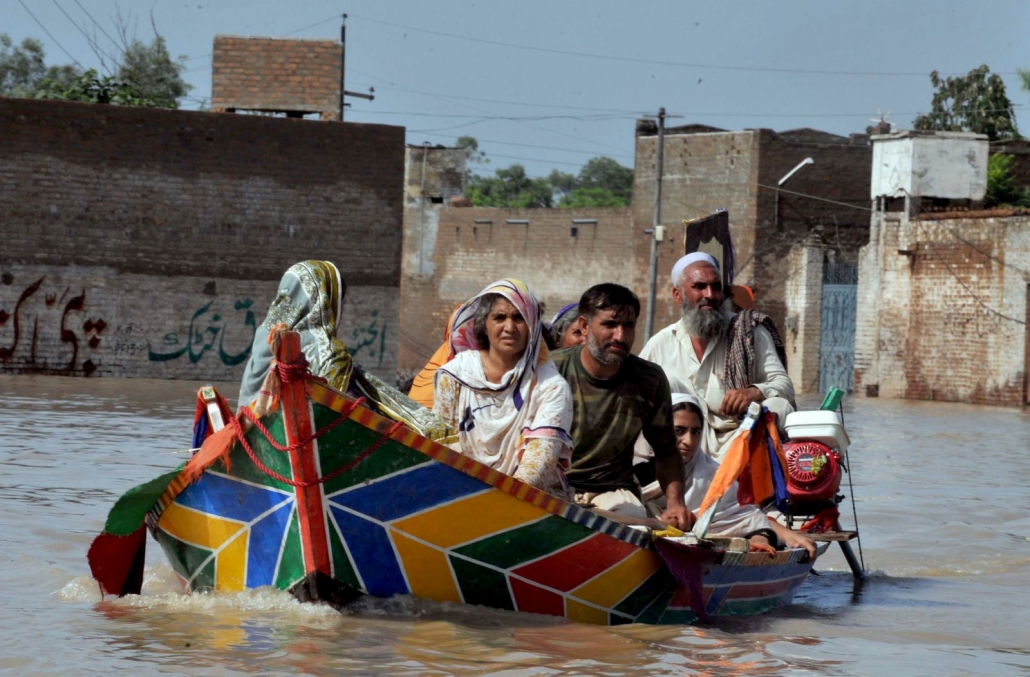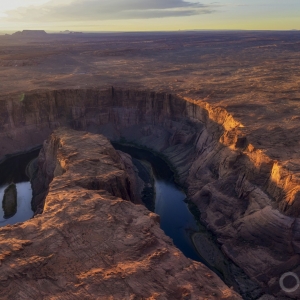The Stream, August 31, 2022: Worst Monsoon Season in Recent History Continues to Wreak Havoc in Pakistan

A family tries to escape 2010’s devastating floods in northwestern Pakistan. Experts say recent flooding may be worse in some parts of the country. Photo © Abdul Majeed Goraya / IRIN
YOUR GLOBAL RUNDOWN
- Heavy rains flood large swaths of Pakistan amid political instability and soaring food prices.
- Officials in Mississippi declare an emergency as the drinking water system in the state’s largest city fails.
- A new study predicts economies across the world will lose trillions of dollars due to water-related disasters.
Olive yields are being decimated by drought in Spain, one of the world’s largest producers of olive oil.
“They ought to be bursting with olives now, close to the harvest. But they’re empty. And this is the crop that should produce the oil in supermarkets next year.”
— Francisco Elvira, an olive farmer in southern Spain
Spain’s worst drought on record has decimated olive harvests across the country’s southern region. Spain is the world’s largest producer of olive oil, producing around half of the global supply. This year, harvests are already down by a third of the average–and forecasts don’t show rain coming anytime soon. Spanish farmers are reporting low yields of numerous crops. Wildfires across the country have burned more than 270,000 hectares, and extreme heat has depleted drinking water reservoirs.
— Jane Johnston, Stream Editor
Recent WaterNews from Circle of Blue
Q&A: Do We Have to Choose Between Speedy Development and Environment? – Environmental review is under scrutiny on Capitol Hill. Here’s what a NEPA expert thinks policymakers should keep in mind.
What’s Up With Water—August 30, 2022 — This week’s episode of What’s Up WIth Water covers drought in China, stalled Colorado River negotiations, and lawsuits over flooding in Eastern Kentucky.
Drought in the American West
- As of August 23, 39 percent of the U.S. and Puerto Rico are in drought, down four percentage points in the last month. Portions of Texas and the Southwest witnessed extraordinary downpours in recent weeks that relieved some drought stress but also caused severe flooding.
- Utah’s proposed Lake Powell pipeline struggles to make progress amid declining water levels and drought conditions.
- Data centers around the country face scrutiny for their substantial water use.
- California becomes first state to install solar panels over canals in an effort to combat drought.
For this week’s biggest headlines out of the drying American West, read Circle of Blue’s weekly roundup.
This Week’s Top Water Stories, Told In Numbers
3 MONTHS
Heavy rains and floods over the past three months have killed more than 1,100 people across Pakistan. The New York Times reports that more than one million homes have been destroyed or damaged. As political instability and food shortages also beset the county, experts say this monsoon season has been the worst in recent history.
- Why It Matters: Although global changes set the stage for catastrophe, many of the key drivers of vulnerability in countries like Pakistan are small-scale, Circle of Blue reported in July. Often, local conditions – the amount of pavement, the location of settlements – are what turns a downpour into a flood or landslide.
160,000 PEOPLE
The drinking water system in Jackson, Mississippi is failing, officials say. The system serves more than 180,000 residents, and has been in disrepair for years. Jackson’s mayor, Chokwe Antar Lumumba, said the city has been battling a water crisis for nearly two years. Now, Mississippi Governor Tate Reeves has declared an emergency for the city, and the National Guard has been called in to distribute water while crews work to repair the water treatment plant. Officials say it’s unclear when the system will be operating again.
- More Mississippi News: The city of Jackson also faces another water crisis: Flooding. The Pearl River, which runs through the south side of the city, is expected to crest at around 36 feet this week, and threatens as many as 150 homes. The city’s mayor told residents to evacuate over the weekend in preparation for the floods.
On the Radar
A new study from the professional services firm GHD found that water-related natural disasters could cost the global economy $5.6 trillion by 2050. Natural disasters of all kinds in the last 50 years have only caused $3.64 trillion in losses worldwide. The study found that the U.S. alone is estimated to shell out $3.7 trillion for water-related disasters in the next 30 years.
More Water News
Climate Whiplash in China: A devastating heatwave has plagued China for most of the summer. Now, heavy rain is forcing evacuations across the country’s southwest region.
Water Recycling in Sydney? A government report out of Australia recommended officials fund and implement water recycling for the city of Sydney as part of a long-term conservation strategy.
Jane is a Communications Associate for Circle of Blue. She writes The Stream and has covered domestic and international water issues for Circle of Blue. She is a recent graduate of Grand Valley State University, where she studied Multimedia Journalism and Women, Gender and Sexuality Studies. During her time at Grand Valley, she was the host of the Community Service Learning Center podcast Be the Change. Currently based in Grand Rapids, Michigan, Jane enjoys listening to music, reading and spending time outdoors.






Leave a Reply
Want to join the discussion?Feel free to contribute!